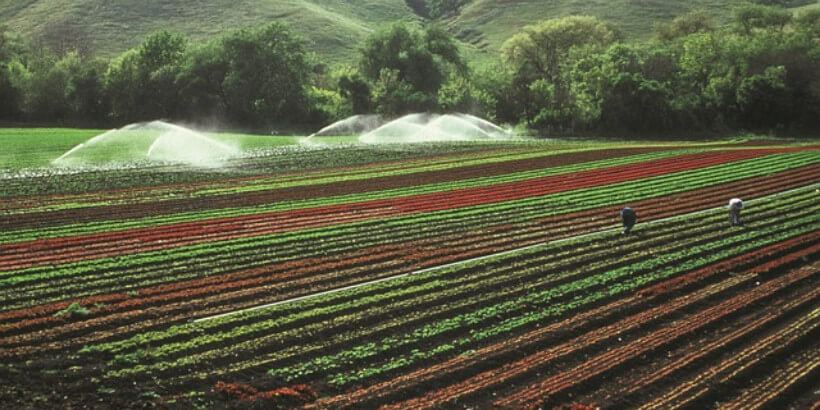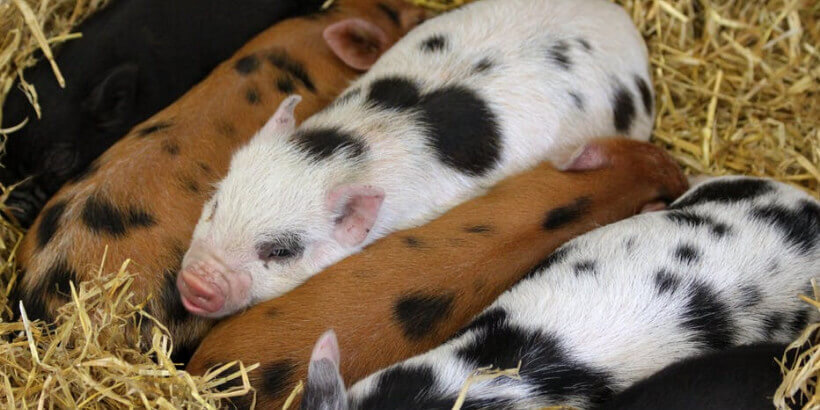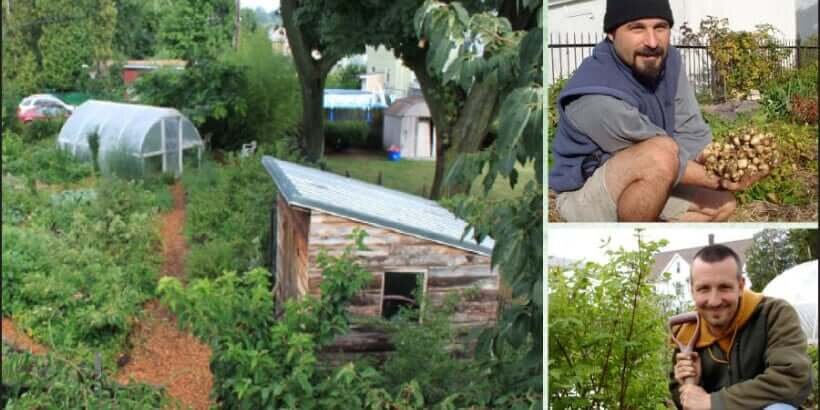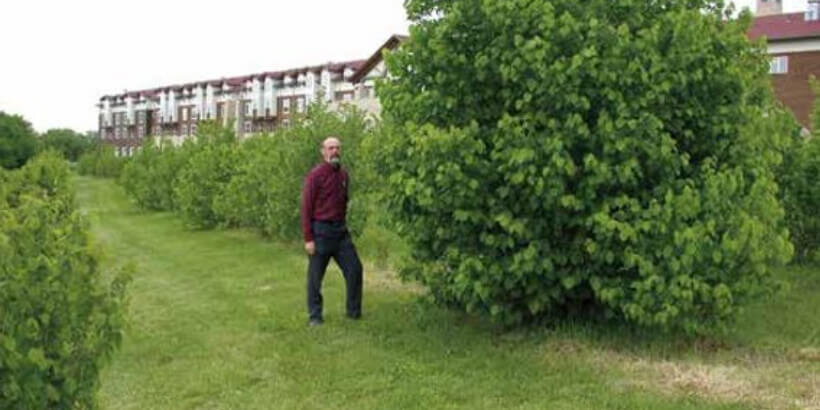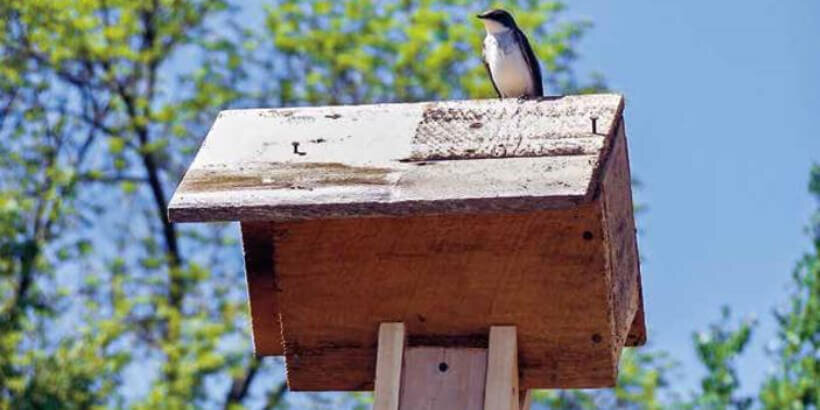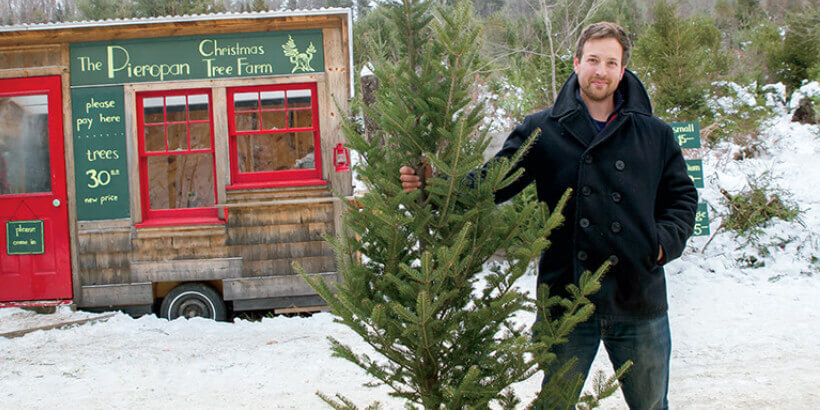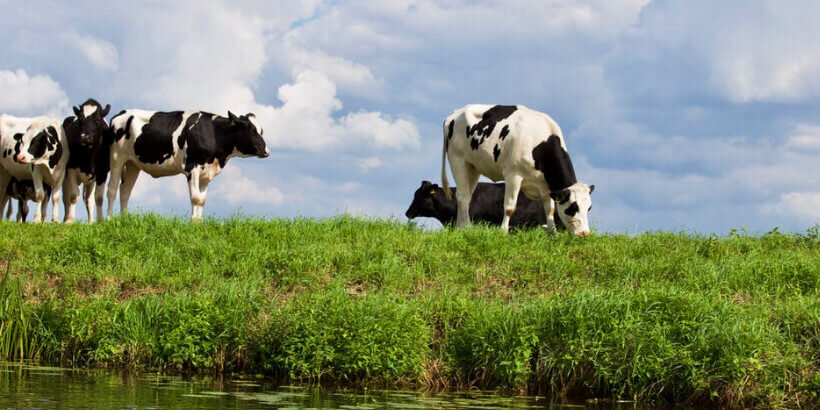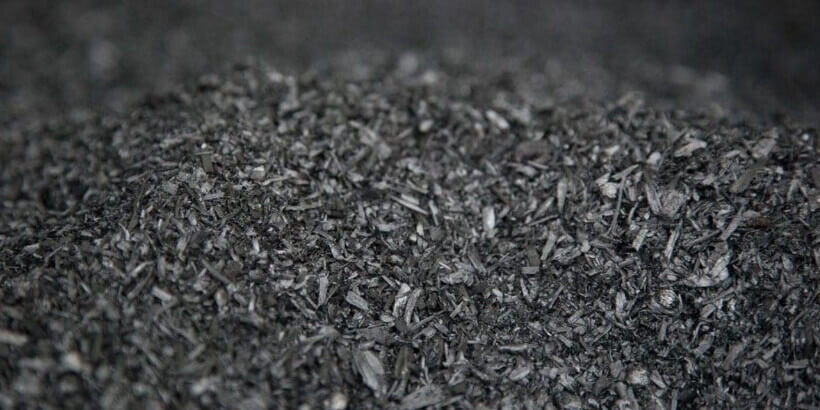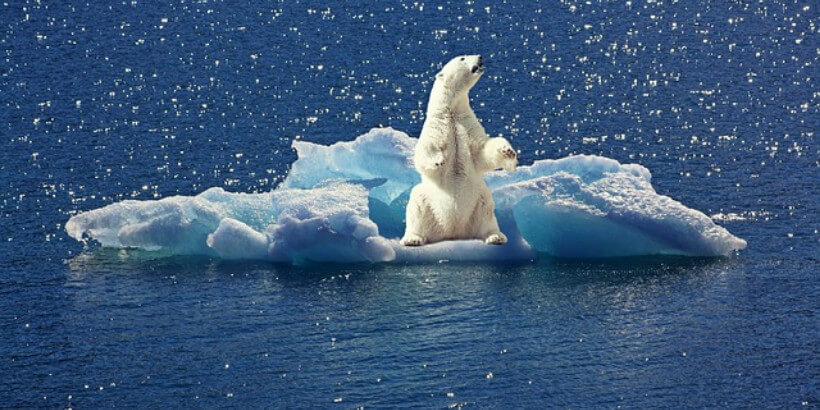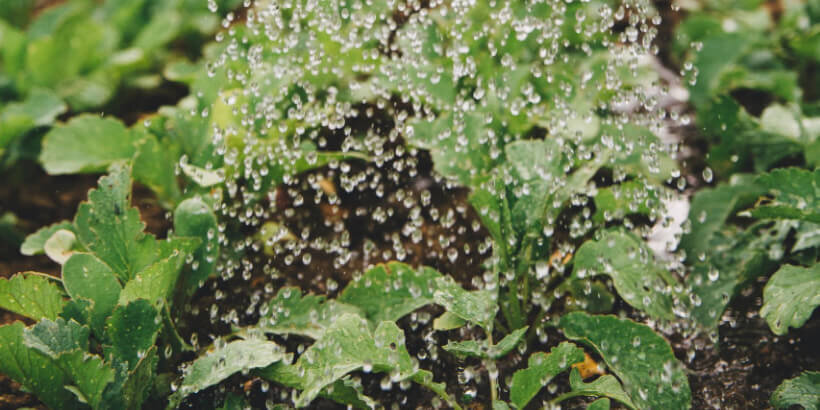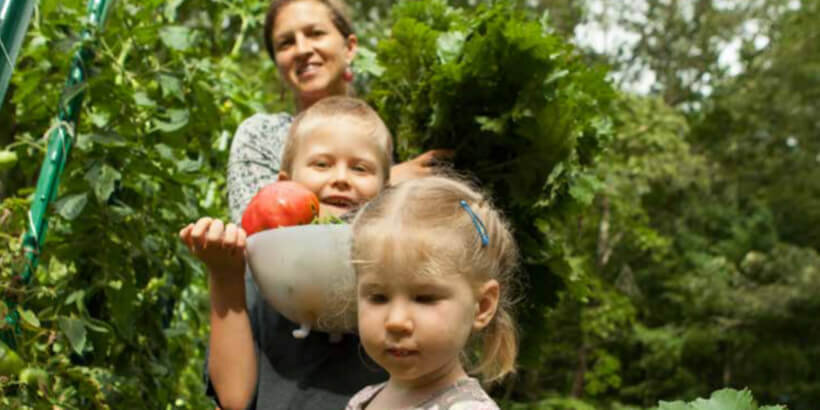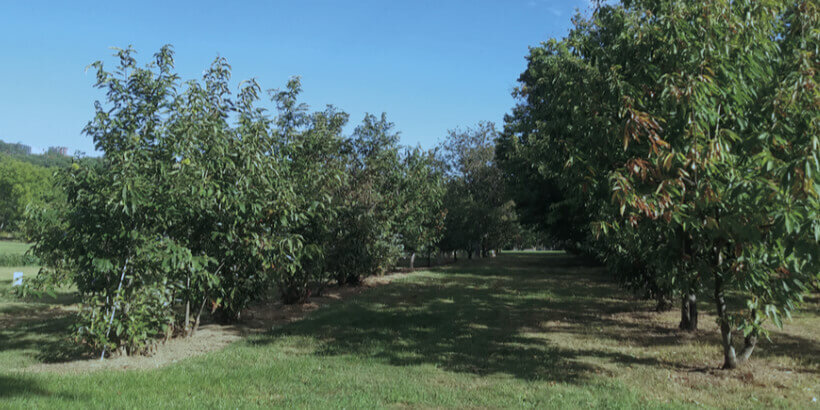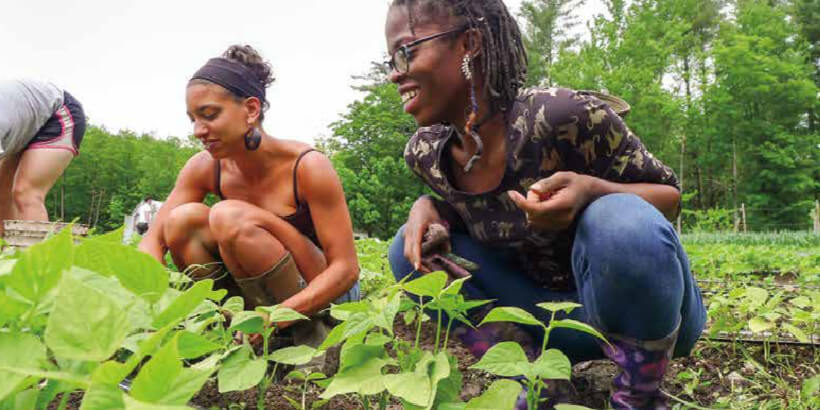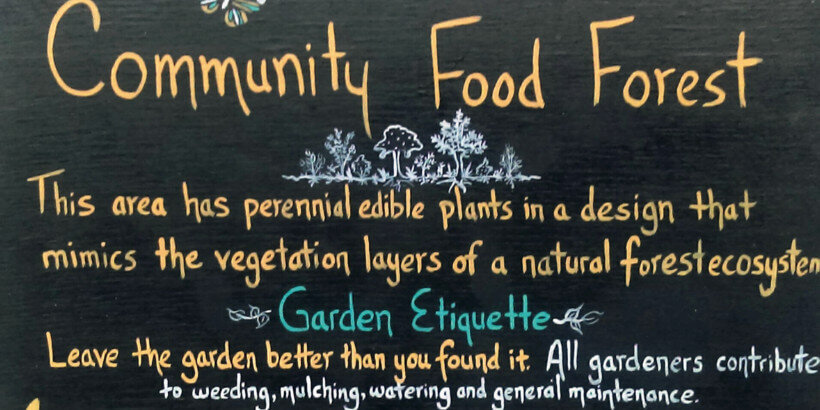DIG IN
The latest articles from Chelsea Green and our authors: offering tips and techniques about how you can bring our books to life in your kitchen, backyard, or community.
Making Your Own Okra Cosmetics
Okra, slime is gold! This pod-producing vegetable is a nutritional powerhouse and has been used throughout history for medicinal, culinary and cosmetics purposes. Discover the benefits of okra when eaten or use the slime from okra for glowing skin, thick shiny hair and strong nails, among others. The following is an excerpt from The Whole…
Read MoreMinerals in Your Farm’s Water
Minerals from soil and outside water sources find themselves in irrigation systems. When you water your land, these minerals infiltrate the soil and change its composition. Your plants are more impacted by their presence than meets the eye, but what exactly is the relationship? The following is an excerpt from Water in Plain Sight by…
Read MoreGetting Started Raising Pigs: Raising Piglets and Piglet Management
Groups of piglets running around a farm or homestead seems like a dream come true. When it comes to making sure each one is healthy and growing properly, it can get chaotic trying to figure out which pig is which. Using identification strategies to keep them organized is not only in your best interest but…
Read MoreBuilding Your Backyard Permaculture Paradise
The award-winning Paradise Lot takes a behind-the-scenes look at how two plant geeks transformed a desolate urban backyard into a permaculture paradise. At the same time, the pair were hoping to each find their own Eve for this special garden adventure. They succeeded on both fronts–creating an urban, food-producing oasis on a tenth of an acre, and…
Read MoreHybrid Hazelnuts – A New Resilient Crop for a Changing Climate
In the face of global threats like climate instability, food insecurity, and water pollution, scientists are looking to how we use our agricultural land for solutions. One such group of scientist-farmers in Minnesota have collectively spent nearly three decades developing what could be the new ecological crop of the future: hybrid hazelnuts. The following is an…
Read MorePlants & Pests: Will Bonsall’s Advice on “Wee Beasties”
In his book, Bonsall maintains that to achieve real wealth we first need to understand the economy of the land, to realize that things that might make sense economically don’t always make sense ecologically, and vice versa. The marketplace distorts our values, and our modern dependence on petroleum in particular presents a serious barrier…
Read MoreYour Starting Place as a Farmer
We don’t often think about how, long ago, the towering and strong trees we see around us in communities and the rows of Christmas trees on farms began as tiny seeds. Much less often, do we think about the people who dedicate their lives to planting and caring for these tress. The first important step…
Read MoreA Guide to Sourcing Food: Quality Matters
Living a healthy lifestyle can be challenging, especially when it comes to buying and sourcing food. You want to keep a budget but don’t want to sacrifice good quality or you’re not sure where to get the best products? The first step is to take the time and see what you have access to– farmer’s…
Read MoreThe Revolution in Performance
In the past decade, there’s been more time and research dedicated to understanding athlete’s health and working to implement safety measures to ensure their well being on and off the field. Accomplishing any athletic goal is more work than just working out and eating right. No longer can we look at sports and nutrition apart.…
Read MoreDoing Well By Doing Good
The list of issues impacting Earth’s rapid decline continues to grow at a highly alarming rate. Environmental concerns are entering the world of politics and business. Our quality of life will not be the same five years or ten years in the future; we are nearing the point of having to think about simply surviving…
Read MoreWater Connects Us All
Water is always changing and impacting the environment around it; storms form, droughts occur, and floods damage. It seems that the level of water on Earth is bouncing between extremes. These shifts are tied to the state of our climate. In the past, climate change seemed like a far-off concept; now it’s becoming more present…
Read MoreHow to Make Biochar
For something that looks like a lump of charcoal, biochar certainly has a great press agent. The subject of books, articles, blog posts, research papers, workshop presentations, conference talks, and various top-ten-ideas-that-will-change-the-world lists. Its potential ability to address a variety of global challenges is indisputably large. So, how exactly do you make this strange material?…
Read MoreDepressed about Climate Change? Here’s How to Take Action
The facts about climate change are settled. Mostly. In fact, the news seems to get worse, and more urgent, every day. Yet, the more the facts stack up, the less resolve many people seem to have about getting behind solutions that will stem, or turn, the tide. What gives? Economist and psychologist Per Espen Stoknes…
Read MoreCreating a Better Earth & Future: Overshoot & Collapse
The environment can only take so much gas emission, over farming, and plastic. What can you do to minimize your human footprint and take care of the earth? Start by looking around you. The following is an excerpt from 2052 by Jorgen Randers. It has been adapted for the web. It is important to know…
Read MoreThe Miracle of Farming: Toward a Bio-Abundant Future
Farmers have a close relationship with nature, seeing life cycles happen right in front of their eyes marvel in what the earth can produce. We wouldn’t survive without their help. Appreciating farming in the natural world, giving what it needs in order to flourish and providing the essentials to survive is an important process. There’s…
Read MoreGrain-Free Diets: When Crisis Compels Transformation
As the rate of chronic illness skyrockets, more and more parents are faced with the sobering reality of restrictive diets. And because everyone is busy, many families come to rely on store-bought “healthy” products to make life simpler, but many of these are loaded with sugar and hidden toxins. When faced with her own family…
Read MoreThe Epic Saga of the American Chestnut
The American chestnut may well be the greatest and most useful forest tree to ever grow on this Earth. Its decline is considered by many ecologists to be one of the greatest ecological disasters to strike the US since European contact. But how did it happen? And are we on track to bring back this…
Read MoreAfrican Farming Traditions: Learning the Power of Tradition
Far before the release of her book Farming While Black, Leah Penniman had been helping countless Black and Brown farmers reclaim their right to the land. For years, Leah has been educating, inspiring, and working alongside so many individuals to make sure they truly understand the customs and traditions of their African farming ancestors and help…
Read MoreSugar, Fructose, and Fructophobia
We’ve always known that if you sit around all day eating candy, you will get fat. Conversely, cutting down on sugar, which is a carbohydrate, will contribute to weight loss and other benefits of a low-carbohydrate diet. However, the extent to which sugar, that is, sucrose, or its component fructose, contributes to obesity and other…
Read MoreHow to Approach the GAPS Diet
Most of us are not mindful of the importance of gut health, or just how far we in the modern world have been distanced from it. Many of us were not breastfed; we received countless simultaneous vaccinations as children and were overprescribed antibiotics and medications from the start. Any one of these phenomena could contribute…
Read MoreBreakfast: Keto-Style and Kid-Approved
If you’ve been following a ketogenic diet for a while now you probably have a few hacks of your own when it comes to cooking up delicious low-carb breakfast options. If you’re new to the program, you’re probably wondering how many different ways you can cook an egg because that’s the only thing allowed. (You’re…
Read MoreAn Edible Urban Oasis
More than 80 percent of the US population now resides in urban areas. This number is projected to rise in the next few decades. Finding ways to maximize use of existing open space is imperative, and increasing access to food through sustainable management of edible landscaping is one important approach among many that are underway.…
Read MoreBacteria: Our Ancestors and Coevolutionary Partners
Fermentation is the transformation of food by various bacteria, fungi, and the enzymes they produce. People harness this transformative power in order to produce alcohol, to preserve food, and to make it more digestible, less toxic, and/or more delicious. It’s played an instrumental role in human cultural evolution and has become a cultural phenomenon of…
Read MoreThe Ketogenic Diet, Cancer, Nutrition, and the Mind-Body Link
For decades, the ketogenic diet—which shifts the body’s metabolism from burning glucose to burning fat, lowering blood sugar and insulin and resulting in a metabolic state known as ketosis—has been used to successfully manage pediatric epilepsy. And now, emerging research suggests that a ketogenic diet, in conjunction with conventional treatments, offers new hope for those…
Read More






